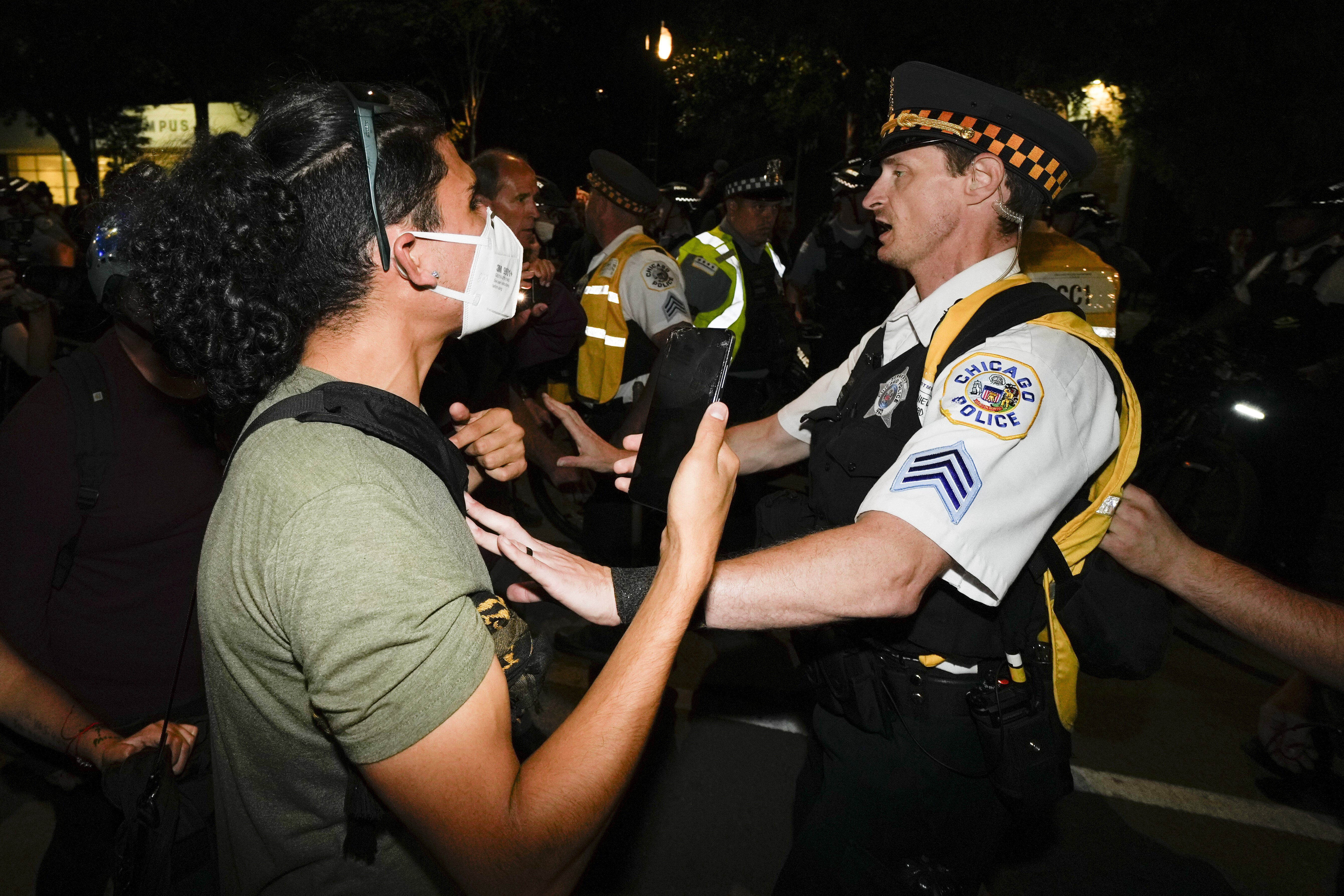Democrats Feared Another 1968 Convention. They Got Something Very Different.

CHICAGO ― In addition to crowning Vice President Kamala Harris as their presidential standard-bearer and unifying the party ahead of the general election, Democrats had one other goal for their convention: to exorcise the ghost of 1968.
The 1968 convention, with its images of anti-Vietnam War protesters being attacked by Chicago police and fistfights in the convention hall that filled Americans’ televisions, has become a shorthand for chaos and disarray.
Advertisement
Fifty-six years later, with another president stepping aside instead of running for reelection and Democrats sharply divided over the issue of Israel’s war in Gaza, there were concerns of a repeat.
Journalist Bill Kurtis, who was 28 when he covered the 1968 convention, told CBS News, “It is eerily similar.”
“As Democrats gather in Chicago, the spirit of ’68 is a painful memory,” the Washington Post declared.
And Fox News blared: “DNC host Chicago, haunted by 1968 convention rioting, braces for bloodshed.”
But it didn’t happen.
Neera Tanden, director of the White House’s Domestic Policy Council, channeled some Democratic relief and self-congratulation in a social media post early Friday morning.
Advertisement
“If we had accountability, everyone who claimed mass chaos would ensue from gigantic protests would be apologizing today,” she said.
“The overwhelming majority of protests against Gaza have been peaceful and the protesters who planned to come to Chicago made it very clear in advance they planned to be peaceful,” said Edward Ahmed Mitchell, national deputy director for the Council on American-Islamic Relations.
“So no one should be surprised that the protests were largely calm and peaceful and that there wasn’t the chaos you might have expected to see in the worst case scenario,” he said.
“I was surprised anyone thought it was possible to foment something like 1968,” said Evan Roth Smith, a pollster with Blueprint, a survey initiative aimed at improving the effectiveness of Democratic messaging. “It’s an absolutely absurd comparison.”
Another factor was the number of protesters. Organizers said they had expected at least 20,000 protesters to descend on Chicago, including college students who have been participating in campus protests in the spring.
Advertisement
About 3,500 protesters showed up on Monday, the first night of the convention, and only about 2,000 protesters on Wednesday night, with the latter resulting in no arrests.
“Did we have a couple dustups? Sure, but those things were quickly rectified,” Police Superintendent Larry Snelling said, according to the Associated Press.
CAIR’s Mitchell also gave some credit to the police. In contrast to 1968, which introduced the phrase “police riot” to the American lexicon, Mitchell said police gave protesters their space.
“Part of the problem you had in 1968 was this violent police crackdown on protesters, and when you’ve seen violence break out on college campuses in recent months, it’s been because law enforcement engaged with protesters in a violent way,” he said.
Instead, the unsuccessful attempts by antiwar protesters to get a Palestinian speaker onto the 2024 convention stage may make the 1964 convention a better analogy.
Advertisement
That year, in Atlantic City, a group of civil rights advocates called the Mississippi Freedom Democratic Party, including movement icon Fannie Lou Hamer, tried to be seated as the state’s party delegation — instead of the all-white delegation, which refused to support Lyndon Johnson.
While that effort ultimately failed, it brought changes to the Democratic Party’s rules and marked a new chapter in the civil rights movement.
Hassan Martini, executive director of rural Democratic get-out-the-vote group No Dem Left Behind, lamented the DNC’s choice not to give Palestinian advocates a podium speaker while giving a timeslot to parents of Israeli hostages held by Hamas.
“I felt sympathy for the parents yesterday of the hostages, and I felt like they were very well-spoken, eloquent, heartfelt,” Martini said.
But, he said, “I felt it was a missed opportunity by not putting up a Palestinian perspective to coincide with it at the same time, to show that unity is possible, peace is possible.”
Advertisement

Comments are closed.